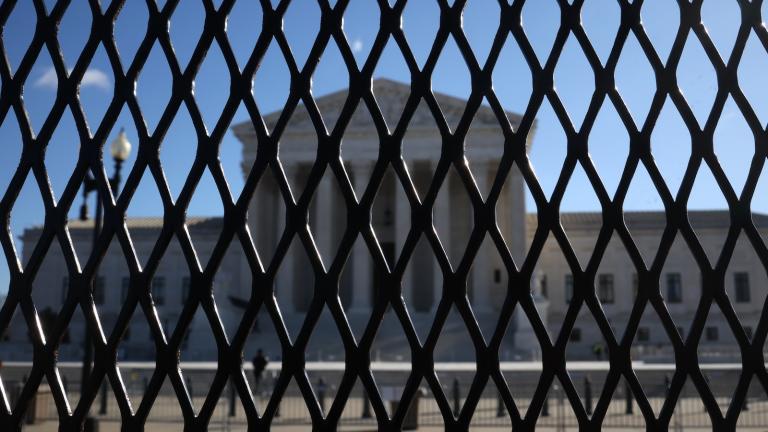Henry Waxman and Ed Markey seem to have mastered the art of the non-concession concession: striking deals with potential opponents in ways that meet their needs while minimizing (though not entirely eliminating) the negative impacts.
Similar to their distribution of allowances, which seemed at first glance to be a massive giveaway but turned out to be far more equitable, the latest compromise between Waxman and House Agriculture chairman Collin Peterson seems to fall into this category. The agreement installs a five year moratorium on calculations for how ethanol and other biofuels affect international land use. Climate pollution is released into the air when American farmers switch their land from growing food to growing fuel, and South American agricultural interests burn the rainforest to clear land to grow additional food to fill the gap.
At first glance, that seems pretty bad, and in some ways, it is. As Environment America’s Anna Aurilio pointed out in E & E (sub required), “No one should be trying to legislate away scientific inquiry.” That’s true – and if there’s a possibility of undoing this concession, we should seize it. But in terms of actual impact on land and greenhouse gas emissions, this concession may be minimal. The 2007 law that mandated a “Renewable Fuels Standard” already exempts 15 billion gallons of ethanol from these land use requirements, and production may not exceed that mark, or exceed it significantly, within the moratorium’s five year time frame – meaning that this provision may have little immediate effect.
However, this concession does essentially punt the question down the road, which means that environmentalists and others concerned about ethanol’s impact (like anyone who pays more for food as a result of ethanol mandates), will have to be very vigilant five years from now to ensure that EPA does actually assess whether ethanol and other biofuels that destroy rainforests should qualify under the Renewable Fuels Standard.
There’s another way in which the legislation may make this concession less damaging than it seemed at first glance. The bill’s tropical forest provisions, which I summarized in this Center for American Progress post and here at Grist, will make deforestation much less financially attractive. By valuing forests for the carbon they store – and by providing incentives for reforestation – they make expansion into pristine areas much less likely. At current carbon prices, a hectare of rainforest could be worth $10,000. Depending on the price of carbon and the price of ethanol, it may make more strict financial sense for land owners, communities, and governments to invest in conservation instead of destroying forest for agricultural land for biofuels or other purposes.
In some cases, that will even be true in the United States where agricultural land values are much higher – farmers may be able to make more from reforestation or restoring their land to native prairie than continuing ethanol production, leading to a welcome conversion of at least marginal land to carbon-sequestering Nature.
The other main concession Waxman made was giving the Department of Agriculture primary jurisdiction over deciding what agricultural activities could qualify as offsets. As Tom Philpott chronicled here at Grist, if USDA continues its long tradition of altering science to meet whatever Big Ag’s financial interest du jour is, that could mean farmers would just get credit for pouring Monsanto’s Round-Up pesticide on genetically engineered crops.
But there’s some hope that USDA would actually apply science. In addition to bringing offsets to scale, we must also ensure that the offsets markets have high standards of environmental integrity to ensure that offsets result in real and measurable greenhouse gas reductions while bolstering efforts to conserve soil, water, and fish and wildlife resources. Tom Philpott added in an email (echoed by this post) to me that while we should view USDA’s promises with skepticism, he’s cautiously hopeful all the public scrutiny of these decisions will at least somewhat improve USDA’s commitment to the environment and science.
“I think the ag lobby will be surprised by the amount of scrutiny on ag offsets,” he said. “They are used to operating in obscurity, and haven’t fully adjusted to this new era of public interest. Meaning that people like you and me can play an important role as watchdogs as this thing develops.”
At the end of the day, that’s the conclusion we need to draw. Henry Waxman and Ed Markey’s policy mastery and skillful negotiating diminished the negative environmental impacts of the compromises that are necessary to build a majority behind real action to solve this great global crisis – but we’ll have to remain involved for years to make sure those negative consequences stay diminished.
UPDATE: Ben Geman at E & E has news of how the bill’s biomass and biodiesel provisions have been changed:
The bill’s renewable biomass definition now mirrors the 2008 farm bill with respect to private lands, stripping language aimed at preventing land clearing that was in the version of the bill approved by the Energy and Commerce Committee. But Energy and Commerce-approved ground rules on use of biomass — such as slash and thinnings — from federal forests and lands were largely retained, including prohibitions on official wilderness and conservation lands. However, while the Energy and Commerce version prevented use of materials from “old growth or mature forest stands,” the Peterson amendment strips the limit on mature stands and replaces it with “late successional forests stands.” This would provide the U.S. Forest Service a clearer definition of what materials cannot be used, according to Agriculture Committee staff…. The amendment also exempts biomass-based diesel from the lifecycle greenhouse gas emissions in the RFS if it comes from plants that were built or under construction when the 2007 law passed. A large amount of the corn ethanol portion of the mandate — which reaches 15 billion gallons — is already exempted from the emissions requirements.


